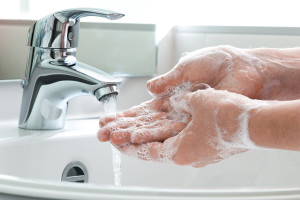What Is MRSA?
 MRSA, or methicillin-resistant staphylococcus aureus, is a type of bacterial infection that is highly resistant to penicillin-related antibiotics. Therefore, it can be difficult to treat. For this reason, MRSA is often referred to as a “super bug.”
MRSA, or methicillin-resistant staphylococcus aureus, is a type of bacterial infection that is highly resistant to penicillin-related antibiotics. Therefore, it can be difficult to treat. For this reason, MRSA is often referred to as a “super bug.”
Responsible for many mild skin infections, the “staph” bacterium that causes MRSA is commonly found inside the nose and on the skin. Many healthy people carry staph and are completely unaware of it. However, if the bacterium is able to enter the body through broken skin or during a medical procedure, it can become problematic. For instance, if MRSA reaches the bloodstream, it can sometimes cause serious and potentially life-threatening conditions, such as:
- Pneumonia (lung infection)
- Osteomyelitis (bone infection)
- Endocarditis (heart valve infection)
- Bladder infection
- Septicemia (blood poisoning)
- Septic bursitis (bursa infection)
MRSA is not only dangerous; it is also contagious. The infection can spread from person to person through direct skin contact, and also from person to object to person. That’s because staph is often able to survive for several weeks on surfaces like floors, sinks, door handles, fabrics, and cleaning equipment. People who have open wounds, invasive devices such as catheters or feeding tubes, or compromised immune systems are especially at risk. For all of these reasons, infections can occur in health care environments, such as hospitals and nursing homes.
To help prevent the spread of MRSA in health care centers, patients are sometimes tested prior to being admitted. The test involves a swabbing of the mucosa (tissue inside the nostrils) to obtain a cell sample. If staph is present, it can often be removed (decolonized) with antibacterial soap, shampoo, or powder, or a special cream designed for use in the nostrils (intranasal mupirocin). Both inside and outside of hospitals, though, everyone is encouraged to prevent the spread of MRSA by washing their hands thoroughly and often, keeping their fingernails short, and not sharing personal items like soaps, lotions, towels, razors, combs, and toothbrushes.
Treatment for MRSA can vary based on the type and location of the infection, the severity of the symptoms, and the antibiotics to which the infection responds. For instance, skin and soft tissue infections are sometimes treated with clindamycin or tetracycline.
If you have questions about MRSA, you can contact or visit South Tampa Immediate Care. Our walk-in clinic is conveniently located on South Howard Avenue in Tampa, FL, and no appointments are ever necessary.













